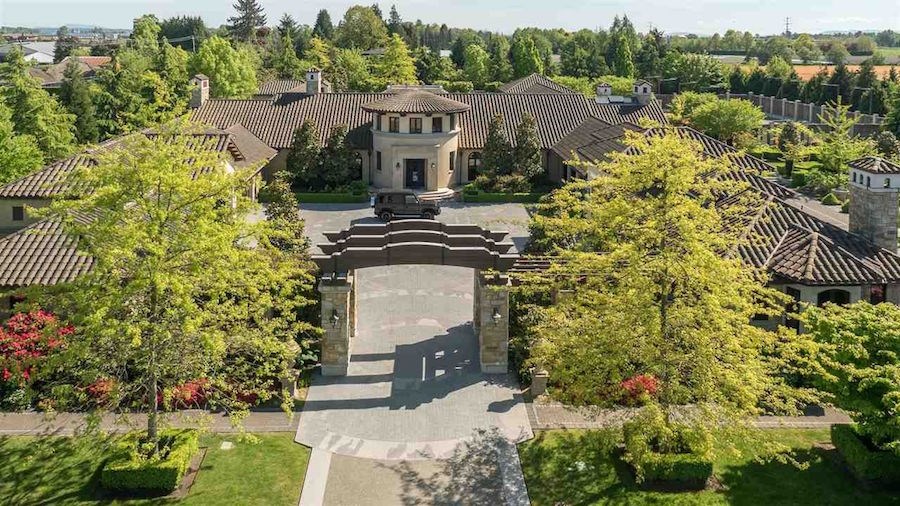Coun. Harold Steves says it will take “guts” on the part of Richmond city council to implement restrictions on the size of homes being built on protected agricultural land in Richmond — despite the fact many other neighbouring municipalities have done so.
Steves said he planned on raising the matter Tuesday evening at a planning committee meeting, following a Globe and Mail investigation that suggests as much as 60 per cent of farm properties in the Lower Mainland are being purchased by non-farmers, such as real estate speculators and foreign investors.
An analysis of 122 property sales since August, 2015, shows $449 million changed hands, but the taxable value of the land was only $52 million (farmland is valued and taxed at a much lower rate than residential).
The tax breaks have correlated with increasingly large mansions, roughly 20,000-plus square-foot in size, being built on properties in east Richmond.
In order to curb the size of homes — viewed by many as an assault on farmland — council will need to amend its building bylaws.
In July, city council wrote to Minister of Agriculture Norm Letnick asking him to restrict home sizes on farmland. Letnick responded in October that this is the responsibility of municipalities.
The City of Port Coquitlam passed a bylaw in July restricting mega mansions on farmland. Now, homes may only be as big as 5,300 square-feet. Delta and Surrey also have similar restrictions that nevertheless allow for large homes for multi-generational farming families to live in.
Steves said an attempt was made to restrict home sizes about three years ago, but opposition from the South Asian farming community, and one accusation of racism, resulted in the motion being dismissed in a 7-2 vote.
Meanwhile, taxation reforms would need to come from the provincial government.
As a result of the mega mansions, Metro Vancouver regional government has called on the province to reform its farm property tax policy. Peter Fassbender, B.C.’s Minister of Community, Sport and Cultural Development, which oversees the Community Charter and property taxes, told the Globe it is reviewing the recommendations.
Metro Vancouver has suggested adjusting the method for valuing agricultural land not used for farming, to discourage non-farm development. It notes that a property worth $4.5 million on residential-zoned land will result in about $10,000 more property taxes than the same property classified as farmland. Furthermore, an industrial building on farmland results in about $60,000 less in property taxes when assessed as agricultural.
But the report warns that changing classification could be interpreted as implying the land is no longer essential to the Agricultural Land Reserve. Therefore, it is recommending explicit language to curb potential abuse or misinterpretations.
Some realtors are actively marketing farmland for investment purposes. Last year, real estate firm New Coast Realty suggested that purchasing farmland may be a good investment if the land is re-zoned as residential, as was done in Terra Nova in 1988.
It also marketed farmland as a place to “build a luxurious house with beautiful woods surrounding it.”



